 |
| For Vietnam, the signing ceremony is a strategic opportunity to affirm its position, demonstrate responsibility, and promote cybersecurity initiatives for a safe, healthy, and sustainable cyberspace. (Photo: Thanh Long) |
Urgent value
The recent global and regional context has been complex, with increasing instability and uncertainty. In that context, non-traditional security issues, especially cybercrime, are becoming more acute, increasing in scale and impact, especially with the popularity of new technologies such as artificial intelligence. This directly threatens the security environment, the development of countries, business operations and the lives of individuals in the digital age.
Cybercrime is now a direct challenge for every country, which no country, even the most developed, can face alone. This reality raises an urgent need for a global solution, enhancing cooperation in preventing and combating cybercrime. The Hanoi Convention, as a global legal framework, is considered the most effective, stable and sustainable solution to address this problem.
At its core, the process of developing the Convention creates a completely new forum for countries to directly interact and exchange with each other to prevent cybercrime, even between countries with different values and national legal regulations. This process is also a place where global values converge and fully ensure the interests of countries, building strong provisions on criminalization, technical assistance and human rights protection that are unprecedented in the criminal conventions at the United Nations.
Stemming from the nature of cyberspace, the United Nations is interested in promoting the widespread and quality participation of social organizations, technology corporations and cybersecurity researchers in the negotiation process, in which, for the first time, large technology corporations and important international organizations directly contributed to the negotiation process through documents and speeches at the conference.
The full text of the Convention was adopted by consensus, reflecting the serious efforts of member states, with the intellectual contributions of technology corporations, professional organizations, and civil society organizations, and reflecting a long-term commitment to combating cybercrime.
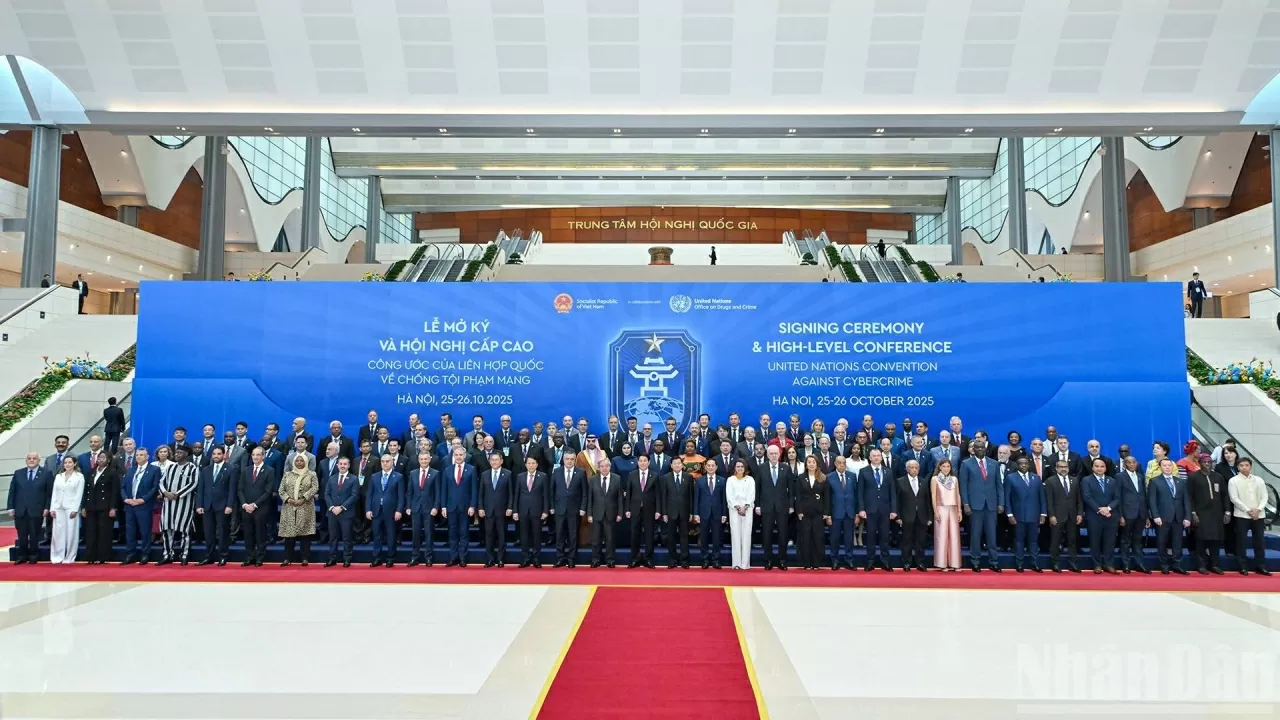 |
| President Luong Cuong and delegates at the official welcoming ceremony for the heads of delegations. (Photo: Thanh Long) |
The Convention's adoption by consensus, with its rapid pace of negotiations and substantive and effective commitments, has reaffirmed the importance of multilateralism and the central role of the United Nations in strengthening international cooperation on the basis of international law to deal with global challenges.
The negotiation process of the Convention demonstrates the United Nations' race to keep up with the advances in digital technology and its determination to achieve common results to prevent cybercrime in the face of the unpredictable development of artificial intelligence. This is a Convention with a record short negotiation time with a dense frequency of negotiations and spread over 2 very far locations, with 8 official sessions and 5 mid-term sessions in just 30 months (from February 2022 to August 2024 - about 900 days) with nearly 1,000 hours of negotiation and 1,600 pages of negotiation documents.
Attracting the participation of a large number of United Nations member states, with more than 150 countries participating in the negotiations, the Hanoi Convention far exceeds the number of countries negotiating the United Nations Convention against Transnational Crime (UNTOC) and the United Nations Convention against Corruption (UNCAC) (only about 120 countries); has a scale equivalent to conventions on the maritime field such as the United Nations Convention on the Law of the Sea (UNCLOS) and the Agreement on the Conservation of Marine Biodiversity in Seas Beyond National Jurisdiction (BBNJ) (with about 150 countries). In particular, the Convention has the participation, contributions, and regular consultations of the largest business associations and technology corporations such as Microsoft, Kaspersky, the International Chamber of Commerce (ICC), Mastercard,
The Hanoi Convention holds particular significance for developing countries. The selection of Ambassador Mebarki, a veteran Algerian female diplomat, to chair the negotiating committee reflects the United Nations' trust and expectations of developing countries.
The commitments in the Convention directly serve the interests of developing countries, countries with many limitations in digital transformation and cyber infrastructure management capacity, through regulations on technical assistance and capacity building. At the same time, the Convention also protects developing countries with a system of regulations on the recovery and return of criminal assets.
Furthermore, developing countries and those with limited capacity can also cooperate in joint investigations against cybercrime based on the Convention. These are the foundations upon which all countries can confidently proceed with digital transformation without being threatened by the risks of cybercrime.
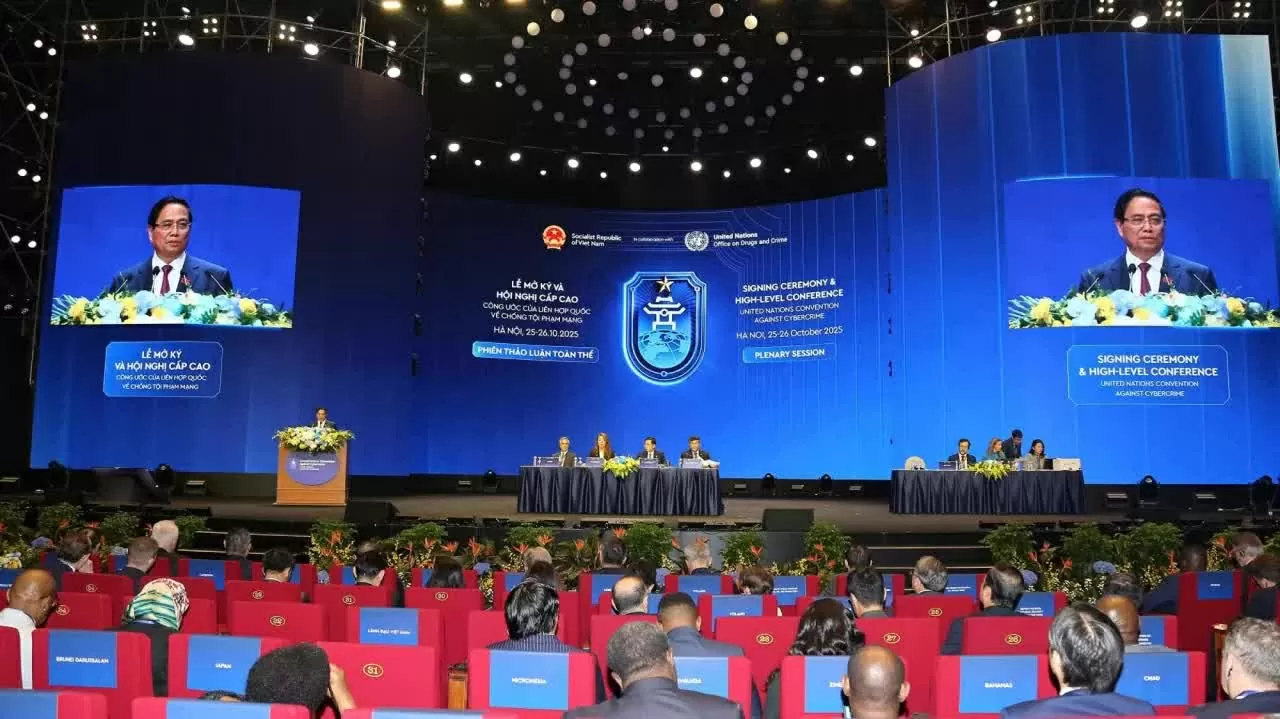 |
| Prime Minister Pham Minh Chinh speaks at the signing ceremony and the Hanoi Convention Summit on October 25. (Photo: Thanh Long) |
Significance of the Signing Ceremony
For the international community, the signing ceremony of the Convention lays the foundation for the next global document of the United Nations in the field of preventing cybercrime, similar to the UNTOC signed in 2000 and UNCAC signed in 2003. The Convention promises to become a legal tool for all member states to cooperate in preventing and combating cybercrime on a global scale, creating a new forum for countries to directly interact and exchange with each other to prevent cybercrime, even between countries with differences in national values and legal regulations.
For Vietnam, the signing ceremony is a strategic opportunity to affirm its position, demonstrate responsibility, and promote cybersecurity initiatives for a safe, healthy, and sustainable cyberspace. Hosting the Convention signing ceremony is a concrete step to implement the Party and State's guidelines and policies on international integration and cooperation, especially Resolution No. 59-NQ/TW dated January 24, 2025 of the Politburo on international integration in the new situation, Conclusion No. 125-KL/TW dated February 14, 2025 of the Secretariat on strengthening the implementation of Directive No. 25-CT/TW dated August 8, 2018 of the Secretariat on promoting and elevating multilateral diplomacy to 2030, Resolution 57-NQ/TW dated December 22, 2024 of the Politburo on breakthroughs in science and technology development, innovation and national digital transformation; directly contributing to promoting the People's Public Security's foreign affairs, in accordance with Conclusion No. 82-KL/TW dated June 7, 2024 of the Politburo.
The signing ceremony allows Vietnam to have a premise to participate more deeply in the issue of cyber safety and security at the United Nations, initiate an international forum to discuss cyber security in Vietnam; as well as highlight the Hanoi Convention at all events and forums of the United Nations and the region related to cyberspace.
In a favorable situation, Vietnam will have the opportunity to receive the best international experience in the field of cyberspace technology, thereby proposing initiatives to ensure a safe and healthy cyberspace environment at the regional and international levels; directly contributing to ensuring Vietnam's national security.
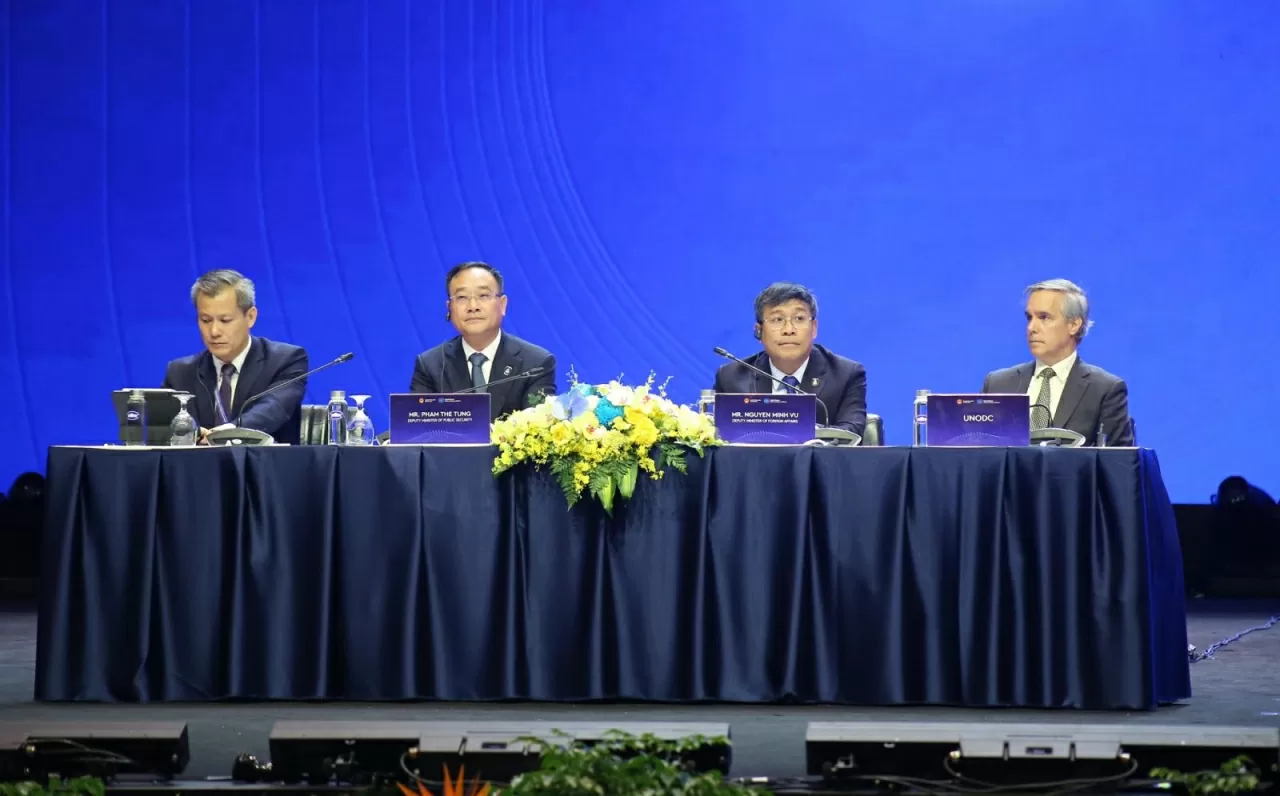 |
| Deputy Minister of Public Security Pham The Tung (second from left) and Permanent Deputy Minister of Foreign Affairs Nguyen Minh Vu (second from right) chair the high-level discussion session within the framework of the Hanoi Convention signing ceremony, October 26. (Photo: Thanh Long) |
The challenges facing Vietnam
Vietnam is one of the countries with the highest Internet penetration in the world, with 78.44 million Internet users as of early 2024, equivalent to 79.1% of the population. According to statistics from the authorities, in 2023, nearly 16,000 reports were recorded on the issue of online fraud alone, causing a loss of VND 390,000 billion, an increase of 64.78% compared to 2022. From the beginning of 2023 to August 2024, there were more than 13,750 cyber attacks on information systems in Vietnam, causing serious incidents. Therefore, the signing of the Convention is of great significance and opens up many opportunities and channels for international cooperation in the prevention and fight against cybercrime in Vietnam.
In implementing the Convention, Vietnam will need to focus on the following issues:
Firstly, quickly select and establish a network of partners to implement the Convention between Vietnam and a number of countries, international organizations, and important technology corporations... Especially with intergovernmental cooperation between countries, there needs to be a cooperation framework, an agreement on information sharing, and a mechanism for dialogue and regular consultation. The Convention opens up opportunities for Vietnam to participate, receive, and build mechanisms and networks for technical assistance, capacity building, and technology transfer with bilateral partners. These mechanisms and networks will enhance the ability to predict, prevent, and respond to all types of cybercrime; at the same time, deepen and bring bilateral relations between Vietnam and partner countries into reality.
Second , the development of a national legal framework to implement the Convention is an important process, ensuring compliance and full implementation of the provisions of the Convention, including international cooperation in preventing and combating cybercrime. Vietnam needs to soon identify a 24/7 focal point mechanism with sufficient authority to participate in cooperation with other countries. Vietnam also needs to soon have regulations to manage new forms of digital technology to meet the provisions of the Convention and exercise national sovereignty in cyberspace. At the same time, regulations related to cooperation and exchange between competent authorities and enterprises providing telecommunications, Internet, digital services, etc. need to be completed according to the principles of the Convention.
Thirdly , the key to the successful and effective implementation of the Convention lies in preparing the infrastructure for its deployment. Investing in technological advancements is crucial, ensuring the effective investigative and preventative capabilities of specialized forces in cyberspace. This requires Vietnamese authorities to grasp new, modern, and advanced technologies to keep pace with the sophisticated methods and tactics of this type of crime.
Besides technology, the human factor also plays a decisive role in the implementation of the Convention. Combating cybercrime requires a diverse and specialized force. This force includes not only state agencies such as law enforcement agencies like high-tech police, emergency response centers (CERT), and judicial bodies such as judges, lawyers, and legal experts in the field of cybercrime, but also extends to technology corporations and everyone involved in cyberspace.
Fourth , Vietnam needs to continue to actively participate in the process of perfecting the international legal framework on cyberspace. It can be seen that the possibility of intersection between cybercrime and cyber security will make the work of preventing and combating cybercrime ineffective until there is a new legal framework on cyber security, according to which countries need to affirm and implement legally binding commitments on legitimate rights and interests in cyberspace. This process continues to be a tense struggle at the United Nations in the coming time and requires Vietnam to actively participate.
Source: https://baoquocte.vn/cong-uoc-ha-noi-niem-tin-ve-khong-giant-mang-an-toan-lanh-manh-va-ben-vung-cho-moi-nguoi-332212.html



![[Photo] Prime Minister Pham Minh Chinh holds a phone call with the CEO of Russia's Rosatom Corporation.](/_next/image?url=https%3A%2F%2Fvphoto.vietnam.vn%2Fthumb%2F1200x675%2Fvietnam%2Fresource%2FIMAGE%2F2025%2F12%2F11%2F1765464552365_dsc-5295-jpg.webp&w=3840&q=75)




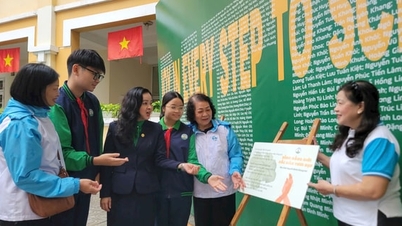

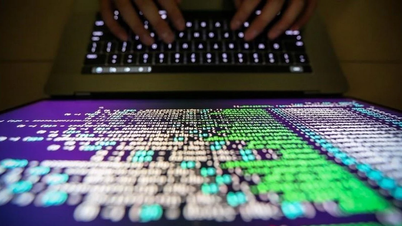

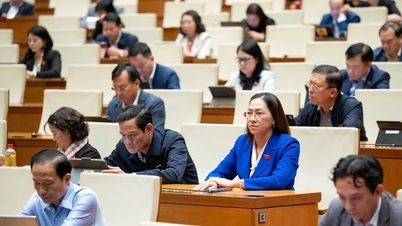



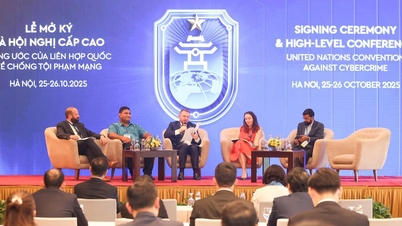
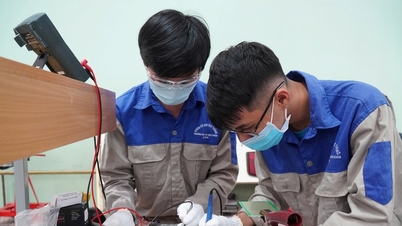

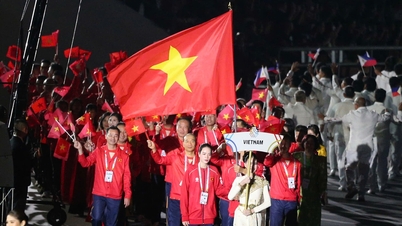

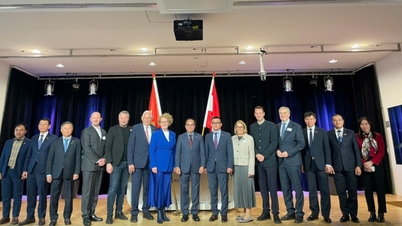
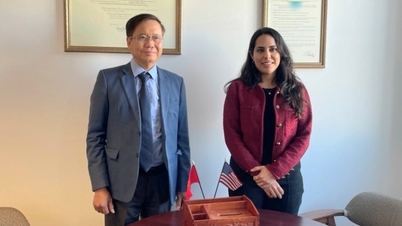


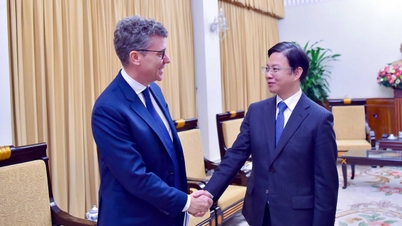
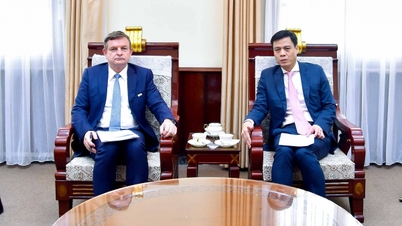

















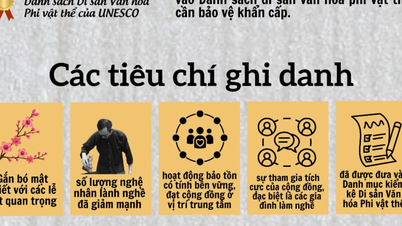


































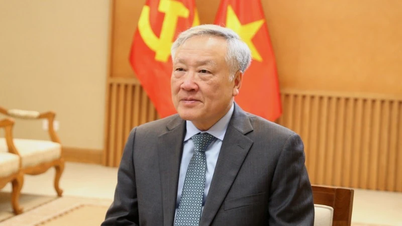




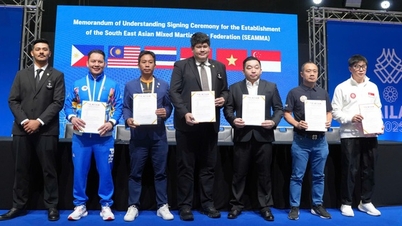

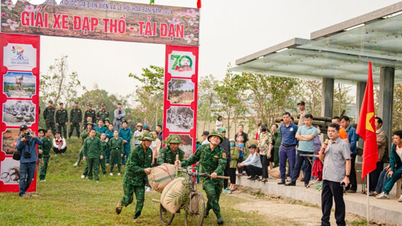






















Comment (0)